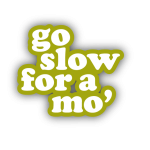
Welcome to the
Snowy Valleys Nature
Wellness Stop
Noticing nature can cause feelings of awe, wonder and soft fascination.
This 10 minute exercise helps you relax and restore.
Start by answering the following to track your wellbeing score before listening to audio. No personal information is collected.
Track your wellbeing score
Listen to the audio
Read the instructions
How will it make you feel
Noticing nature can cause feelings of awe, wonder and soft fascination. This exercise creates changes in your body that reduce stress and increase connection.
Step 1: Start by finding a space where you feel comfortable and safe (sit or stand).
Step 2: Take in some free oxygen from the trees. Breathe slowly in through your nose for a count of four and out through your mouth for a count of four. Repeat three times.
Step 3: Notice how things feel from where you are, the feeling of sunlight or wind on your skin. Become aware of the smells around you or carried in on the wind.
Step 4: Look at all the colours you see in what is alive around you. Pick one you like and saviour it.
Step 5: Listen to the natural sounds around you. What is the quietest sound you can hear?
Step 6: Look up at the clouds. Release any tension in your face as you take in the sky.
Step 7: Place one hand on your heart and one on your belly. Notice how your body responds to this position. Stay here for at least a minute. Imagine your feet growing roots into the ground.
Step 8: Look around for something flying. Imagine how things look from 20 metres up.
Step 9: Now, notice something smaller than your thumb. Attend to all the details of it. Thank it in your mind for catching your eye.
Step 10: Finally, notice how nature doesn’t judge. It just is. Enjoy your time with nature as long as you like!
Please answer three quick questions. NO personal data is collected to identify you
Need Support?
Sometimes when we take time out of our busy lives to stop and pause, it can raise unexpected feelings such as anger, anxiety, or sadness. It may also present memories with strong emotions which may feel overwhelming. If you or someone you know needs to talk to someone, you can contact Bushfire Recovery Team between hours 8.30 am to 5pm, Monday to Friday on 0436 942 100 or Murrumbidgee Local Health District 24 hr Accessline on 1800 800 944
Nature Wellness Stops Locations
More Information
Where: Tumbarumba Showground
It’s no longer just a walk in the park
Research is confirming what we have all known for a long time. Nature has a profound effect on our mood, wellbeing and resilience. Natural spaces allow us to escape; they afford novel opportunities to smell, hear and feel something different from the places where we live, work and play.
But it’s about creating moments not just minutes. What we do in nature matters more than the amount of time spent. The more meaningful the experience the more profound the benefits!
What benefits can you expect?
- Engaging your senses in nature has well-documented beneficial effects on improving mental restoration, calm and creativity e.g. nature smells and touch stimulate resilience to stress.
- Copying nature activates senses in our body which increases our connection and empathy with nature.
- Being near running water and enjoying sunlight increases feelings of relaxation, clears the mind and boosts immunity and metabolism.
- Looking at nature’s patterns helps us to relax and has the same influence on our emotions as listening to classical music!
- Listening to nature sounds restores attention and reduces muscle tension faster and more effectively than listening to urban sounds.
- Looking at nature’s diversity through ‘soft fascination’ reduces stress and increases feelings of relaxation, interest and awe.
- Standing near trees improves our immunity. When looking up and out on nature we can expect to enjoy a range of additional neurological benefits.
- Expressing gratitude of nature makes us happier and healthier improving our immune system, reducing blood pressure, improving sleep and pain management.
Do you have a suggested location for Go Slow in your area? Let us know by contacting either:
Jacinta Elphick
Bushfire – Disaster Recovery Clinician
Adelong Health and Community Centre
M: 0436 942 100
E: Jacinta.Elphick@health.nsw.gov.au
Jenni Wines
Bushfire – Disaster Recovery Clinician
Adelong Health and Community Centre
M: 0436 947 959
E: Jennifer.Wines@health.nsw.gov.au
This Nature Wellness Stop is proudly brought to you by:

